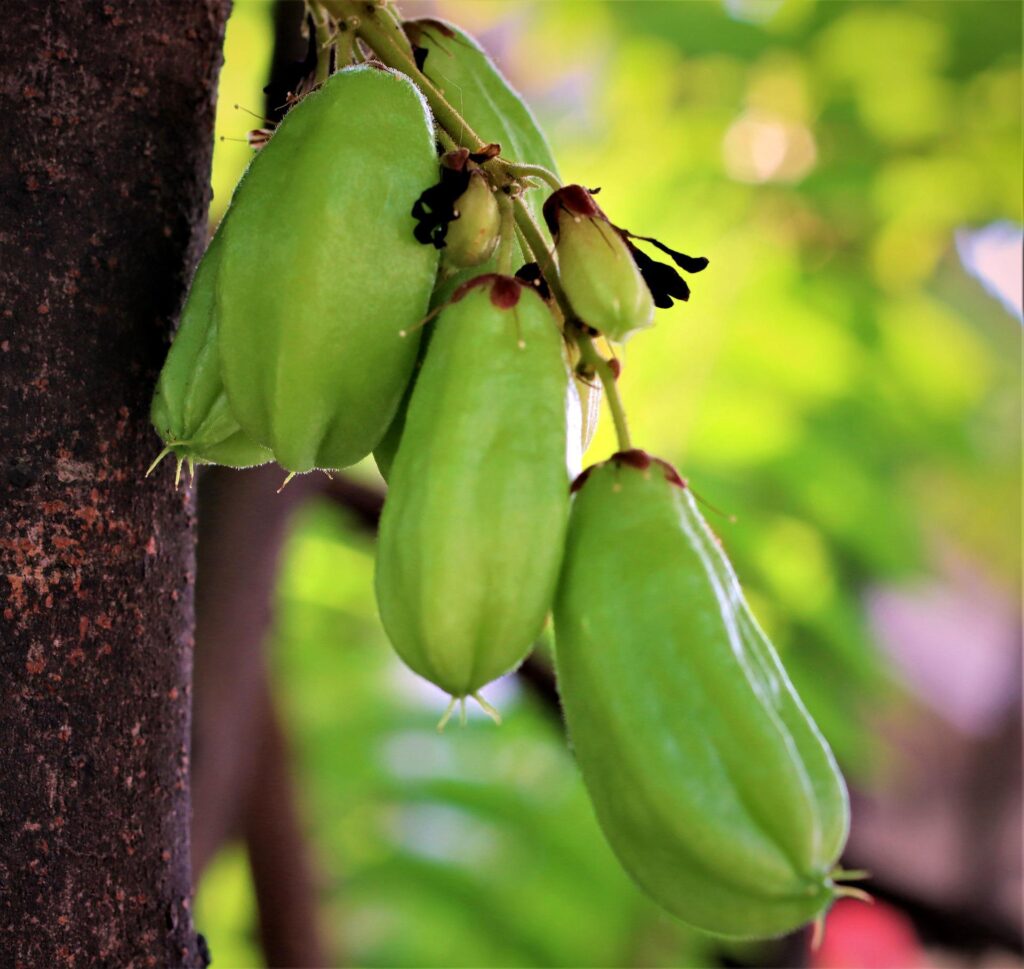Bilimbi Fruit (Averrhoa bilimbi)/Bimla information, bilimbi taste, its health benefits, culinary uses, recipes and how to preserve it.
What is Bilimbi?
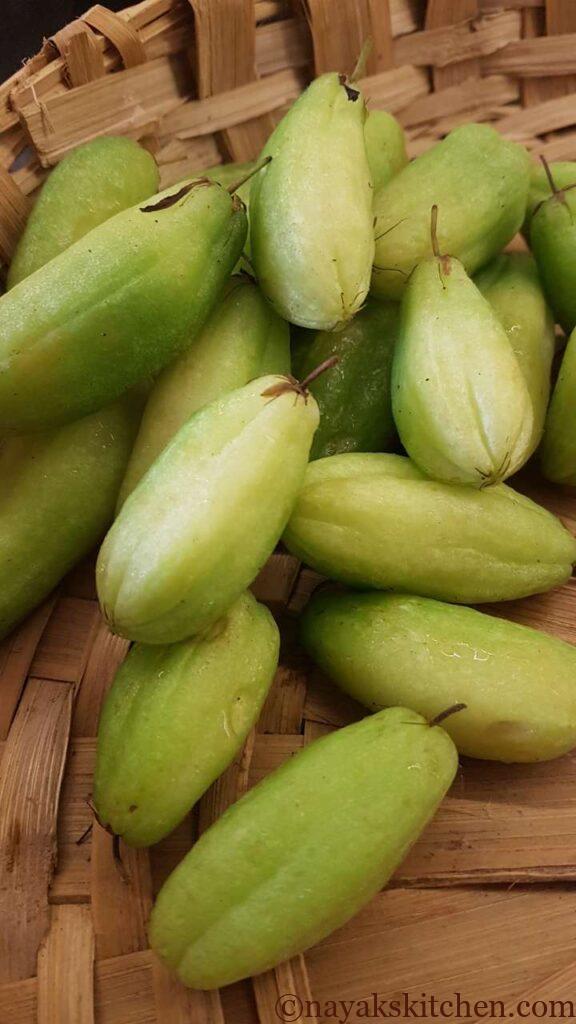
Bilimbi is a fruit that grows abundantly in many South Asian countries. Its botanical name is ‘Averrhoa Bilimbi‘, however, it is generally known as bilimbi, tree sorrel or cucumber tree (since the fruit resembles a cucumber from the outside).
It is found along the coastal regions of South India in the states of Goa, Maharashtra, Kerala and Tamilnadu. The hot and humid climate of these states and the availability of water all year round make it conducive for the bilimbi tree to thrive easily in these regions.
The bilimbi is known by the following names:-
- Konkani – Bimla
- Marathi – Bilambi/Bimbal
- Malayalam – Irumban Puli
- Tamil – Pulima
Bilimbi Tree
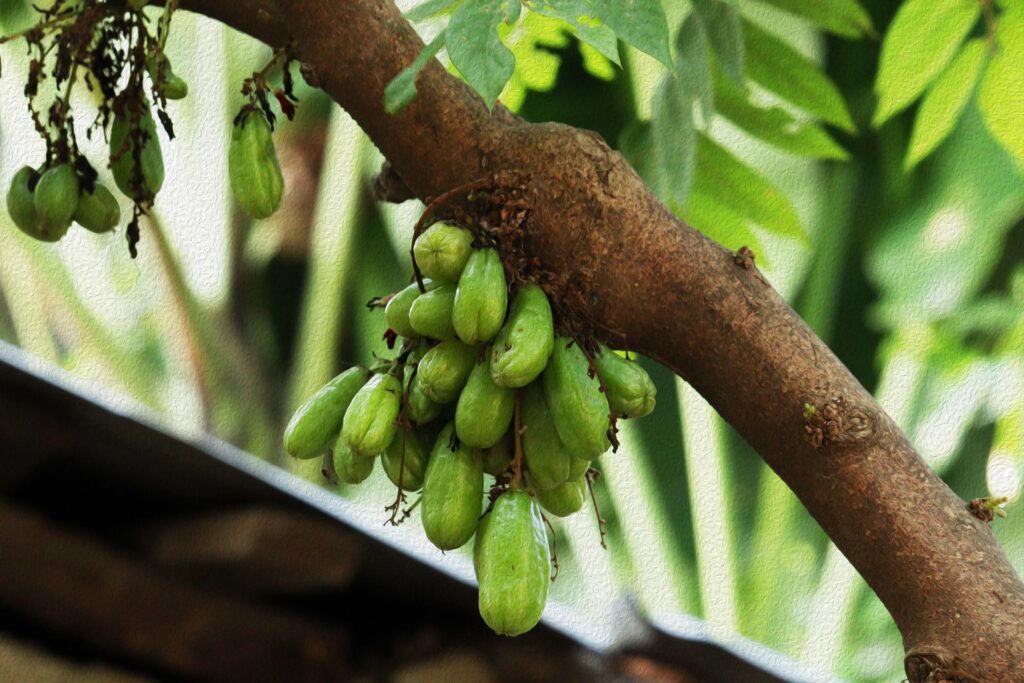
The bilimbi is a tropical, fruit-bearing tree of the genus ‘Averrhoa‘ belonging to the family Oxalidaceae. The tree bears fruits almost throughout the year. The fruits look similar to a bunch of grapes. It flowers in February and bears fruit until December. The flowers are small, fragrant and purplish. Additionally, they are really beautiful and attractive to look at. (see pic below)
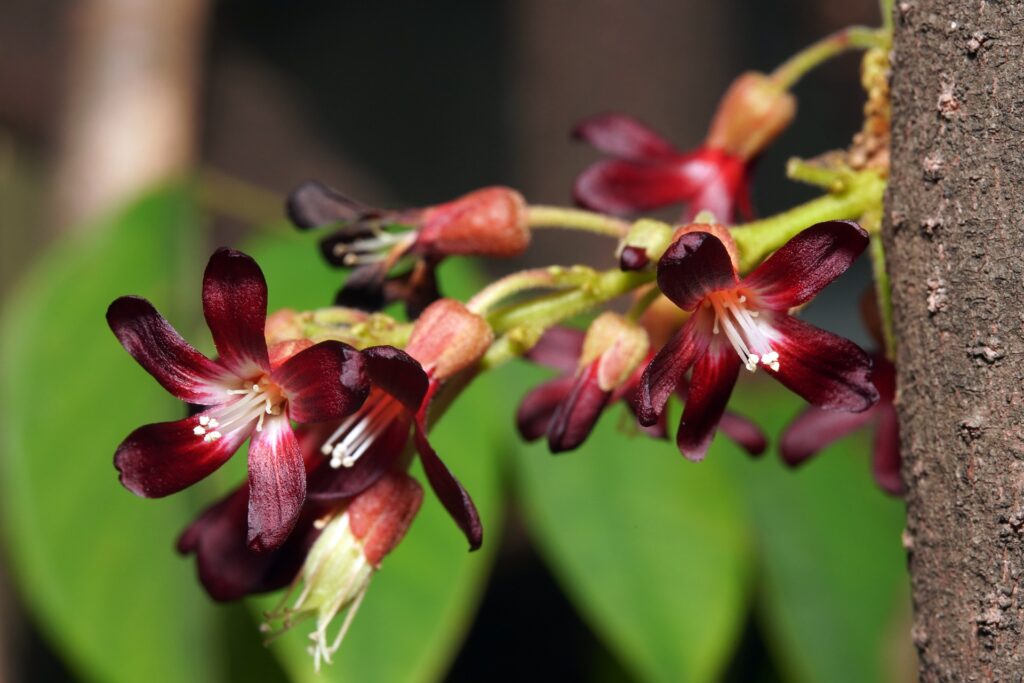
Most of the Goan households will have a tree in their backyard. The tree is usually planted near a well. Since this would ensure it receives an ample amount of water. The bilimbi tree requires a lot of water to thrive. Also, it can bear hundreds of fruits in conducive weather conditions.
Bilimbi Fruit
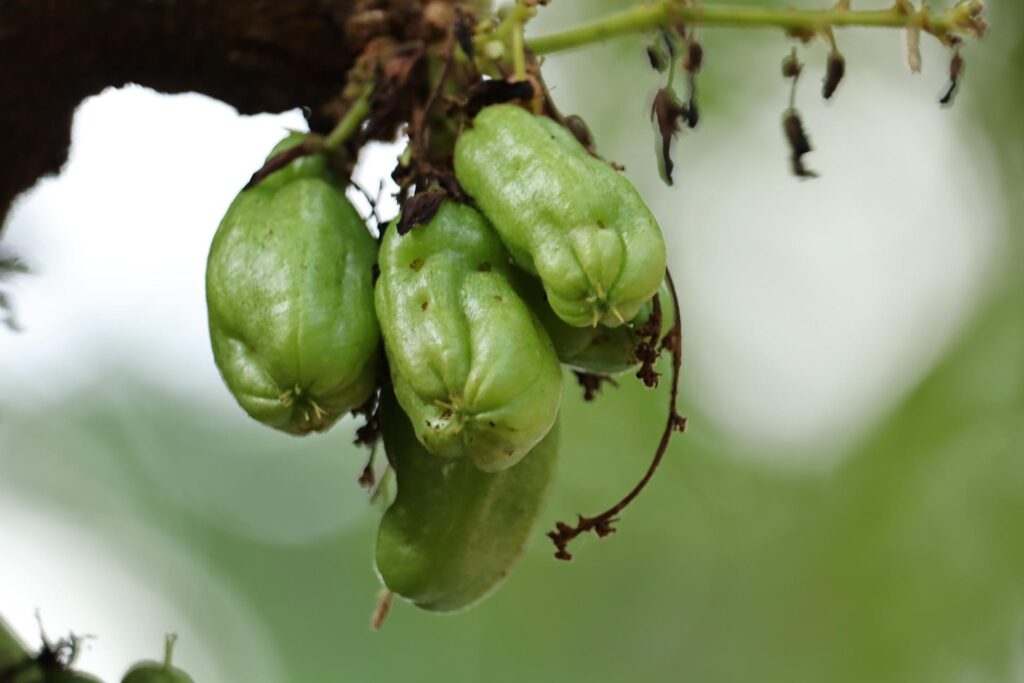
The bilimbi fruit closely resembles a starfruit. They grow in clusters on bushy trees. It is bright green, crunchy and crisp when unripe. However, ripe bimla fruits are yellowish green, yellow or even white. The fruit is tart and extremely sour to taste. You may find seeds inside.
It is unpalatable raw because it is highly acidic. Nevertheless, pickling reduces its acidity and makes it more palatable. However, it can be eaten raw with salt.
Caution: Avoid eating raw bilimbi if you are not habituated as you may catch a cold.
Taste of Bilimbi Fruit
The bilimbi is highly sour to taste and astringent. The oxalate in bilimbi is what gives the fruit its sour taste. Its seeds are brown and flattened.
Can I store bilimbi?
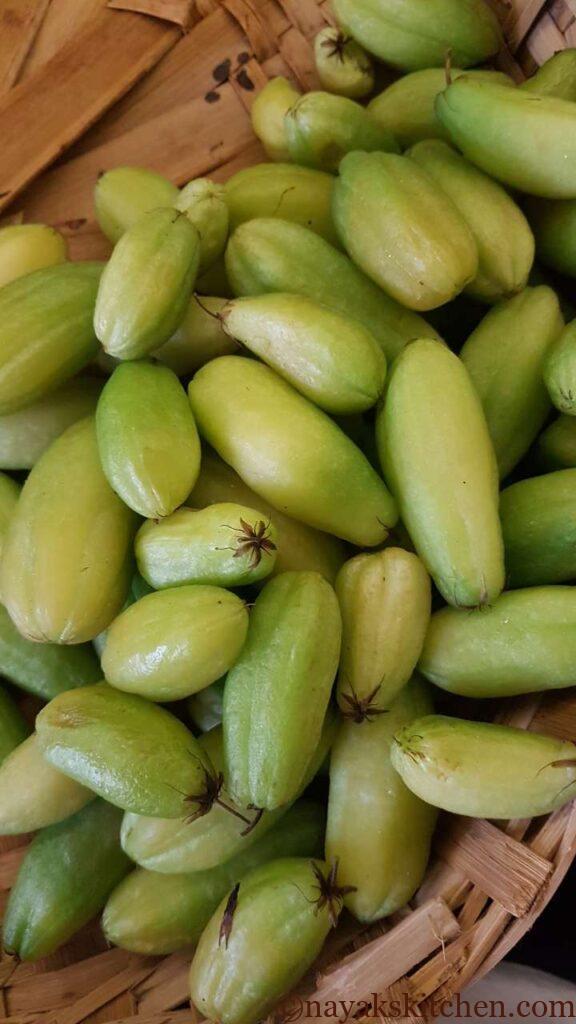
Plucked bilimbis have a 5-day shelf life at room temperature, just like kokum. The water content of the bimla fruit is very high. Hence, it is difficult to store it. The bilimbi is not commercially grown because of its highly perishable nature.
Transportation is a challenge as refrigeration also does not help. Also, it cannot be frozen as it is prone to chilling injuries. The fruit becomes completely useless if frozen. Subsequently, you will mostly find it only in the local markets.
How to store bilimbi fruit?
Although the fruit cannot be stored in its raw form, bilimbi can be cut, salted, sun-dried and then preserved. Sun drying primarily reduces its water content and helps it to last longer.
Bilimbi recipes (Pickles and more)
The bilimbi fruit has versatile culinary uses. From pickles to chutneys, preserves, stews, sasav and uddamethi (veg curry), there are innumerable ways to use it. In Goa, it is used as a souring agent in prawns and fish curries because of its zesty taste. It is also used to infuse flavours into dals and curries.
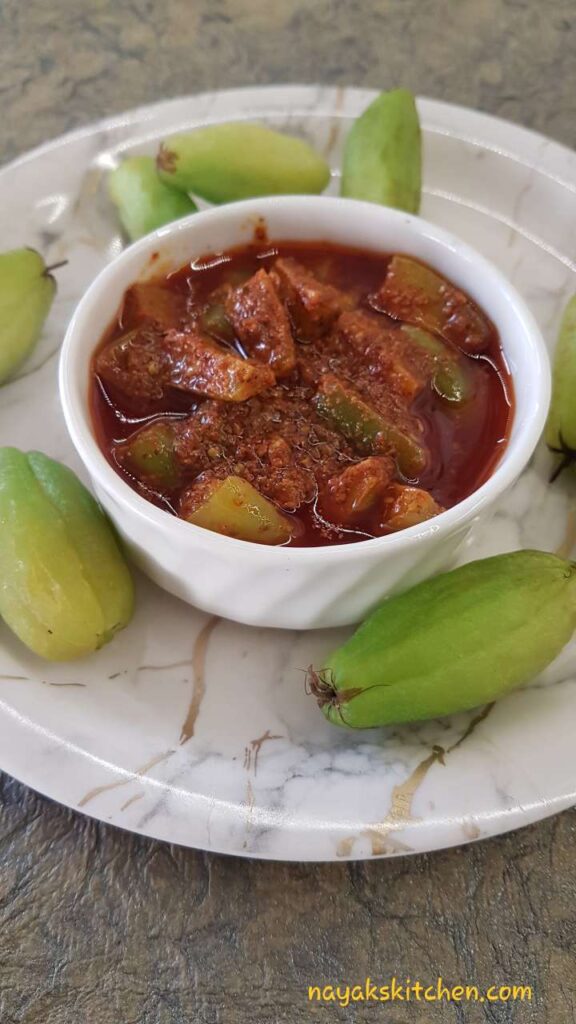
Bilimbi is also used to make a cooling drink similar to lemonade.
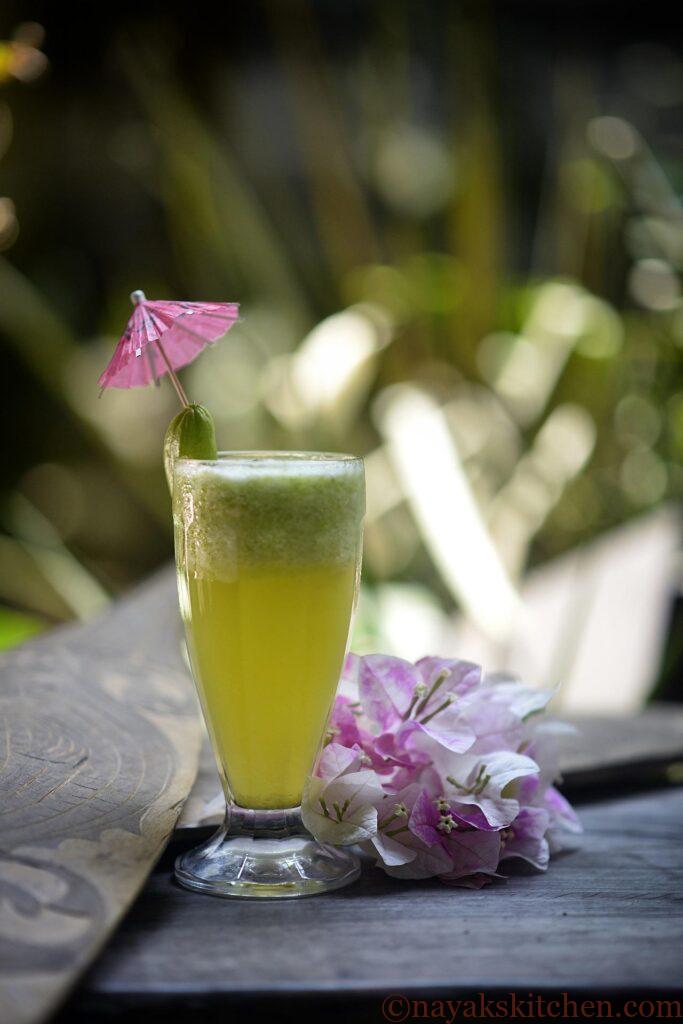
Moreover, it is sometimes preferred over tamarind or kokum as a souring agent. Primarily because tamarind lends a light-brown colour to the curry. Whereas bilimbi will offer the same tartness and sharp notes without affecting the colour of the curry.
Did You Know? Bilimbis that are very acidic are used to clean knife blades. They are also used to remove rust stains from white cloth.
Bilimbi Health Benefits
There are many health benefits of bilimbi. The seeds and flowers of the bilimbi tree also have remarkable therapeutic properties. They are used in different herbal remedies.
- Keeps high blood pressure in check.
- A rich source of Vitamin C. Thus, boosts immunity.
- Flavonoids and fibre in the fruit regulate blood sugar levels.
- Has anti-inflammatory properties.
- Rich source of calcium. Improves bone density and leads to stronger bones.
- Detoxifies the body and reduces LDL (bad cholesterol).
- Fiber in bilimbi maintains digestive health and reduces constipation.
- Antioxidative properties of bilimbi help to reduce the oxidative damage of our skin cells caused by free radicals. Thus, bilimbi improves skin health.
- Lastly, bilimbi is a rich source of iron and can help prevent or treat anaemia.
These are a few of the bilimbi benefits. However, bilimbi contains high oxalic content. Eating in moderation will help improve your health in manifold ways.
The bilimbi fruit is not in demand commercially. Hence, it is vanishing from the local market scene too. We have to make efforts to conserve this superfood. Introduce it to your kids and ask elders from your family of its usage in your cuisine. Or else in a few decades our future generations will never know what bilimbi is!
